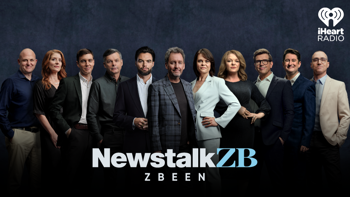
TVNZ bosses held off telling staff that the broadcaster needed to reduce employee costs by $10 million because it would have had a “catastrophic” impact on morale before Christmas, the Employment Court has heard.
Speaking on the second day of a hearing in which TVNZ is appealing an earlier ruling that found it in breach of the company’s collective agreement, former acting chief executive and current chief operating officer Brent McAnulty said at the time job cuts were “becoming an inevitability” and they needed to come up with a plan that would limit uncertainty for employees.
As well as creating concern for staff, he said raising the figure last year would have impacted market confidence.
McAnulty told the court the broadcaster held off progressing any proposals until TVNZ received its second quarter financial results.
“We all hoped our revenue position would change for the better.”
This did not eventuate and he said the downturn, which began in February 2023, had worsened by the end of the year.
As acting chief executive, McAnulty said he kept staff updated with regular emails and all-staff video briefings where workers could ask questions anonymously.
He outlined several instances where he detailed to staff the financial struggles the broadcaster was experiencing, which he said was caused by businesses trimming their marketing spend and a drop in Government advertising.
“I do not know what more could be said by either TVNZ or its employees to alter the position we are in.”
As a result of the earlier ERA decision, TVNZ has had to retain 17 staff while the Employment Court hears the case as a matter of urgency.
Today’s arguments centred around TVNZ’s compliance with clause 10.1.1 of the collective agreement, which the ERA found it had breached.
The clause states that TVNZ will support the active participation of staff in the development of the organisation and changes in workplace practices.
“TVNZ acknowledges that change is an evolutionary process and employees will be involved throughout. The aim of this participation will be to discuss all relevant information openly and honestly and to reach agreement and to make recommendations to management,” the clause said.
Representing TVNZ, Paul Wicks KC argued the clause had not been breached and that TVNZ had supported the active participation of staff in the workplace change through its 2023 Te Paerangi programme and subsequently when it became clear that the shows needed to end.
The 2023 Te Paerangi programme was a form of staff consultation to discuss falling revenue and the need to cut costs.
Chief judge Christina Inglis queried whether Wicks believed the reaching agreement requirement was satisfied by giving staff an opportunity to comment on the proposal.

Paul Wicks KC.
Wicks told the court he did, noting that the consultation was trying to reach an agreement while retaining the ability for a final decision to be made by TVNZ.
“Do you think a reasonably informed objective observer looking at this might think it’s significant that the wording isn’t consultation? It’s participation, agreement, discussion, rather than consultation,” she said.
Wicks accepted the word was not used, but didn’t believe it needed to be. He emphasised that the part of the clause she referred to had to be read in its wider context, the third paragraph of clause 10.1.1.
Simon Mitchell KC, for E tū, questioned whether it was fair to state that McAnulty’s position was that decisions regarding how the $10 million would be saved were for leadership at TVNZ.
“It’s what we’re paid to do,” he replied.
To this Mitchell asked whether he saw any incongruity with the 10.1.1 clause and McAnulty said he did not believe there was.
Mitchell asked McAnulty if the Te Paerangi programme discussed specific redundancies and he said no.
He then referred to TVNZ Sunday senior producing director Del Byast’s testimony yesterday where he outlined how he was not involved in Te Paerangi but would have been had he known his role was on the line.
Byast broke down in tears as he revealed he and his family came close to buying their first home, shortly before the state broadcaster cancelled the current affairs show.
“I was so confident about Sunday’s place in the newsroom that last year my partner and I were making multiple offers to buy our first home,” he said.
Katie Harris is an Auckland-based journalist who covers social issues including sexual assault, workplace misconduct, crime and justice. She joined the Herald in 2020.
Take your Radio, Podcasts and Music with you









